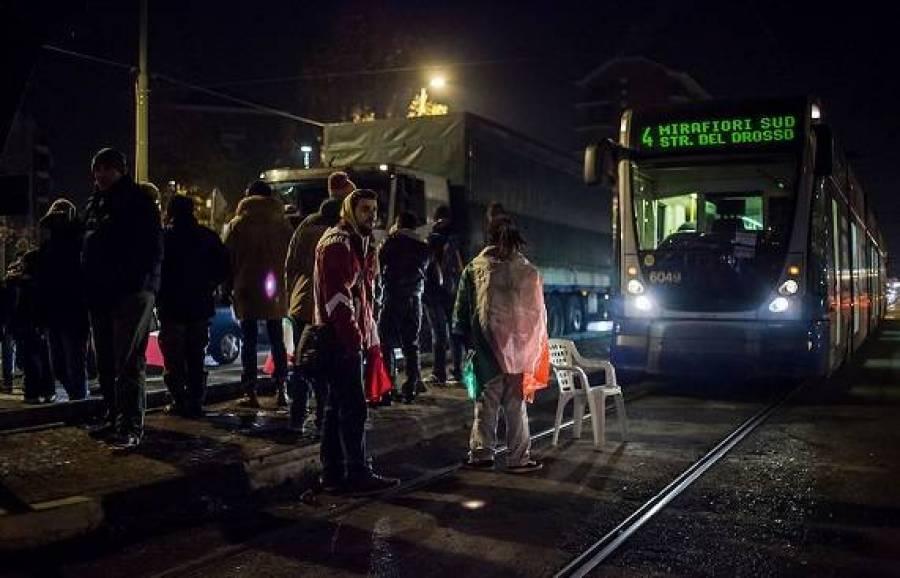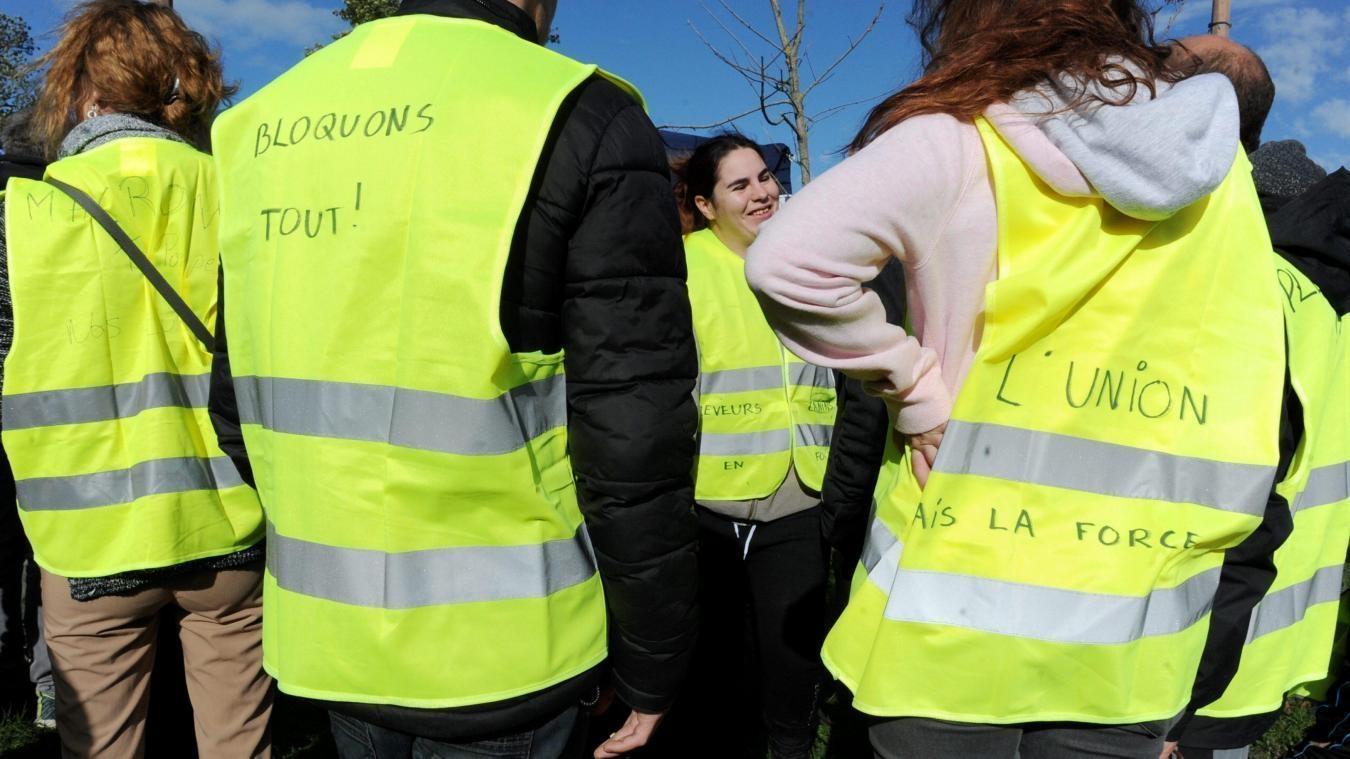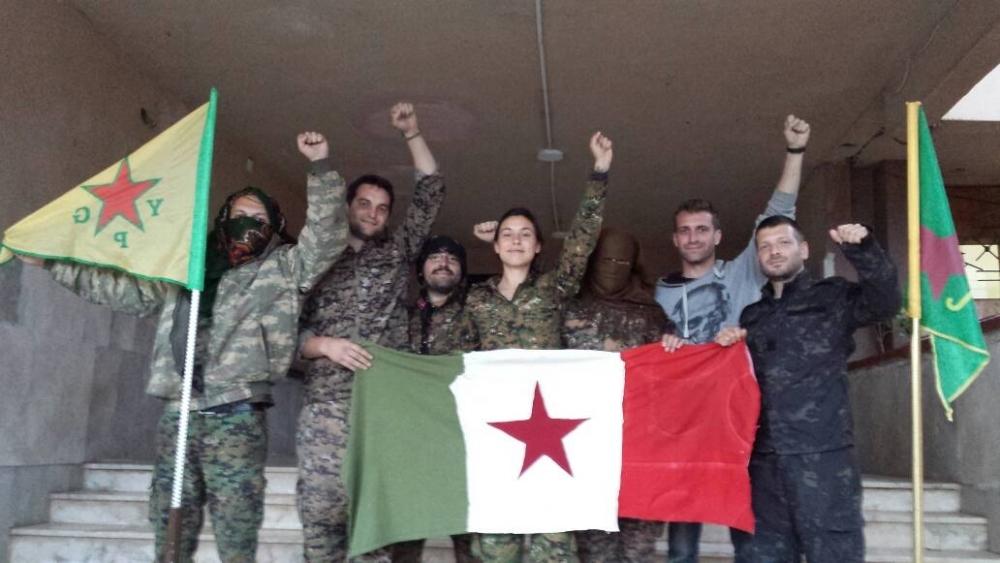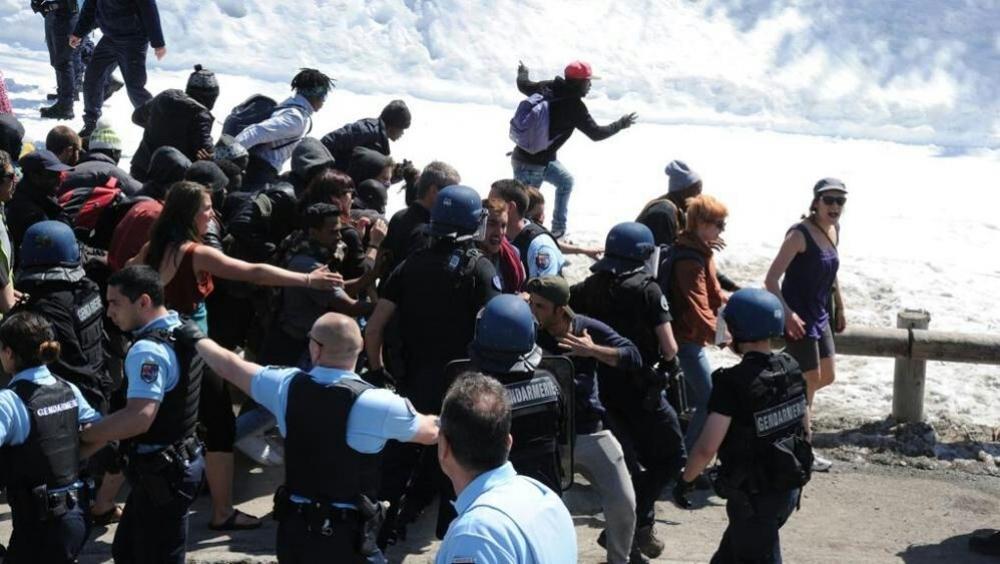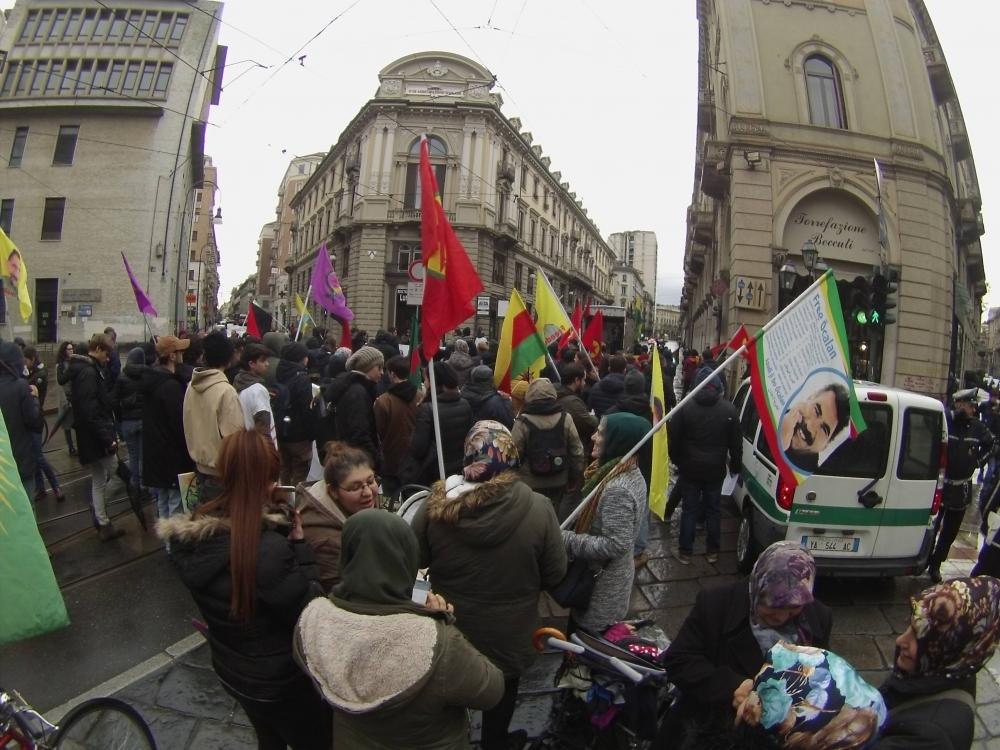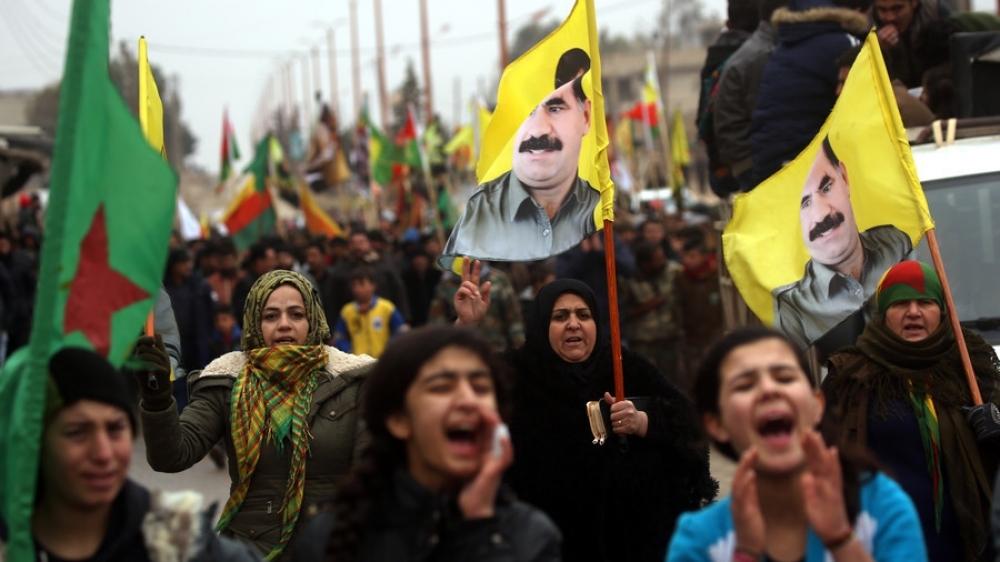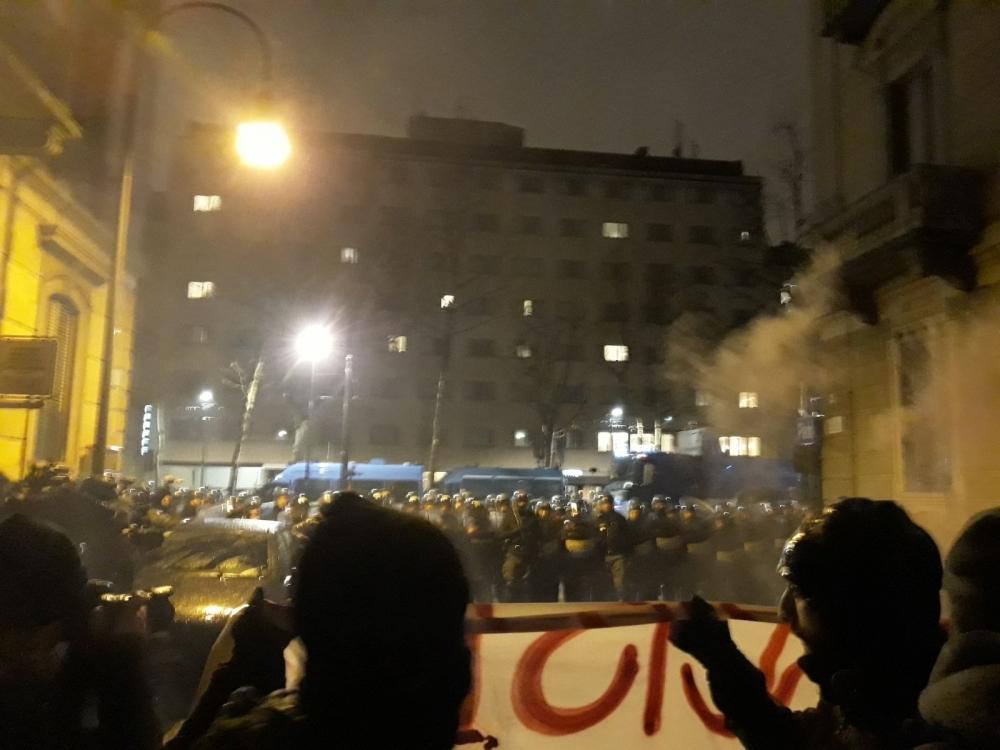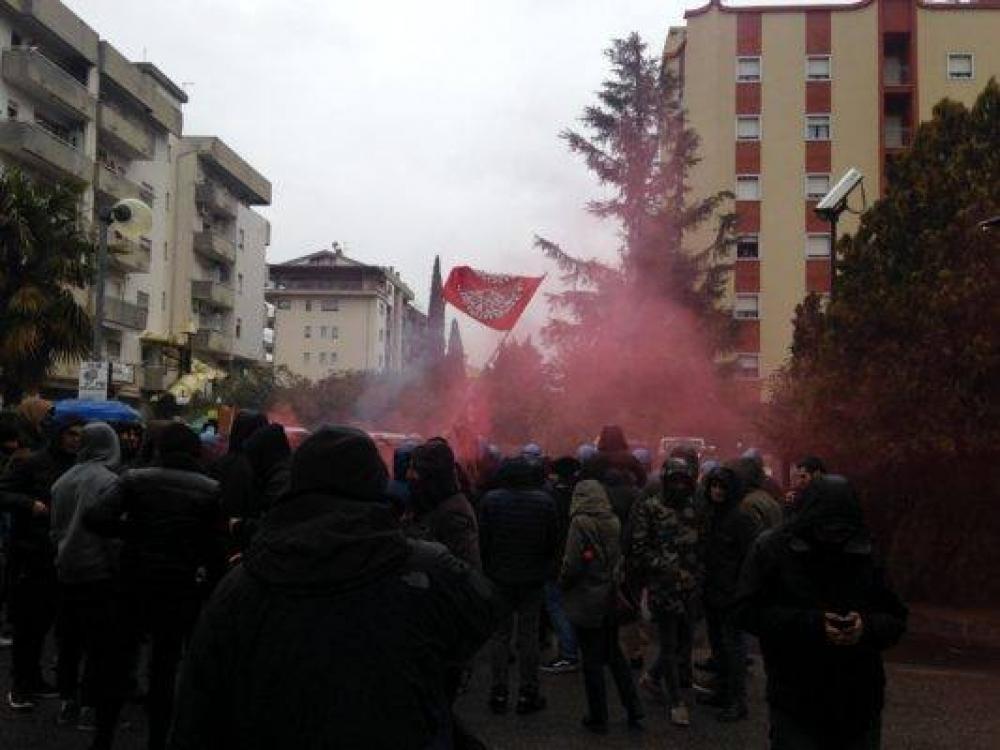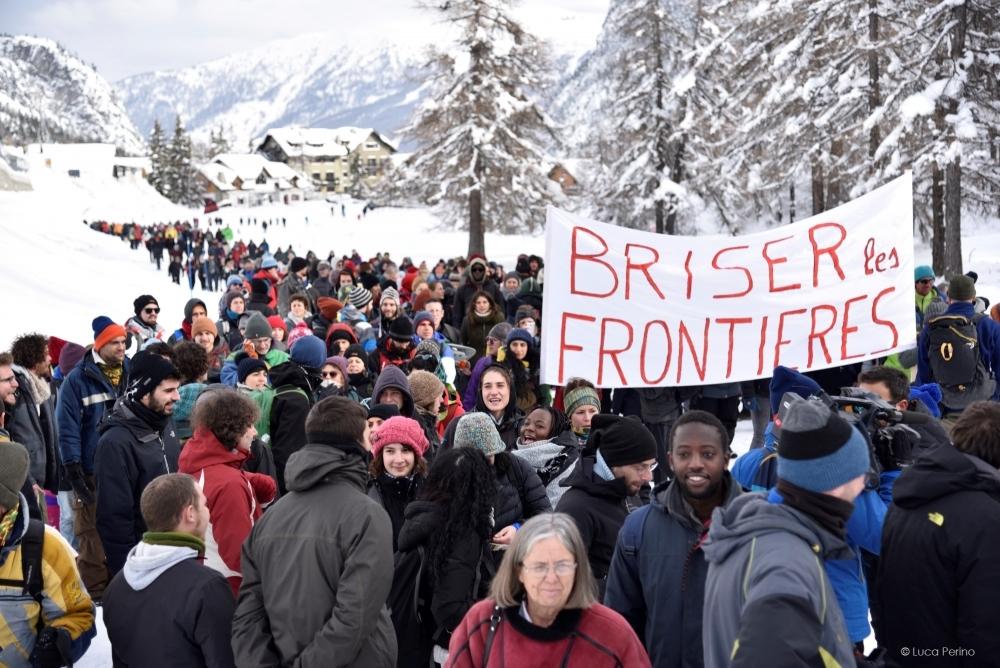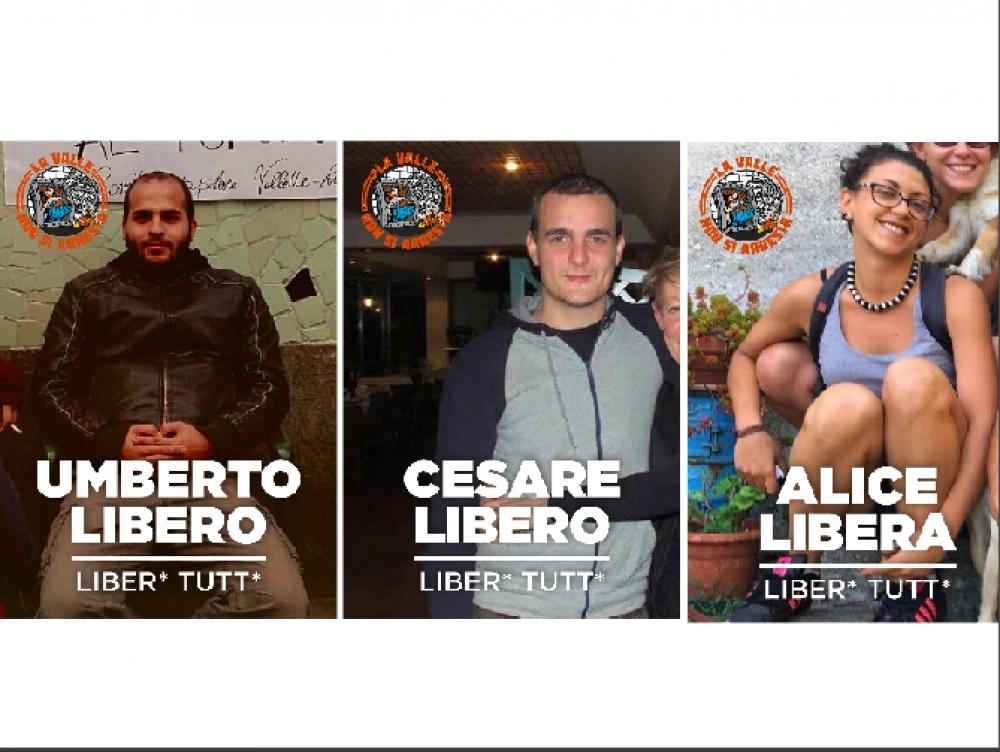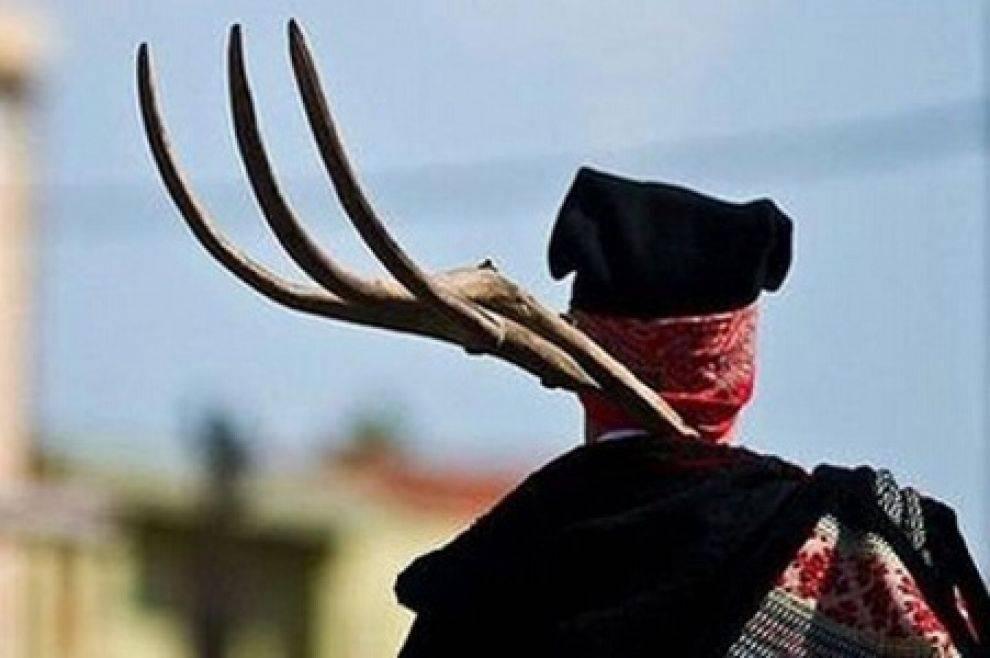
Italy and the Pitchforks
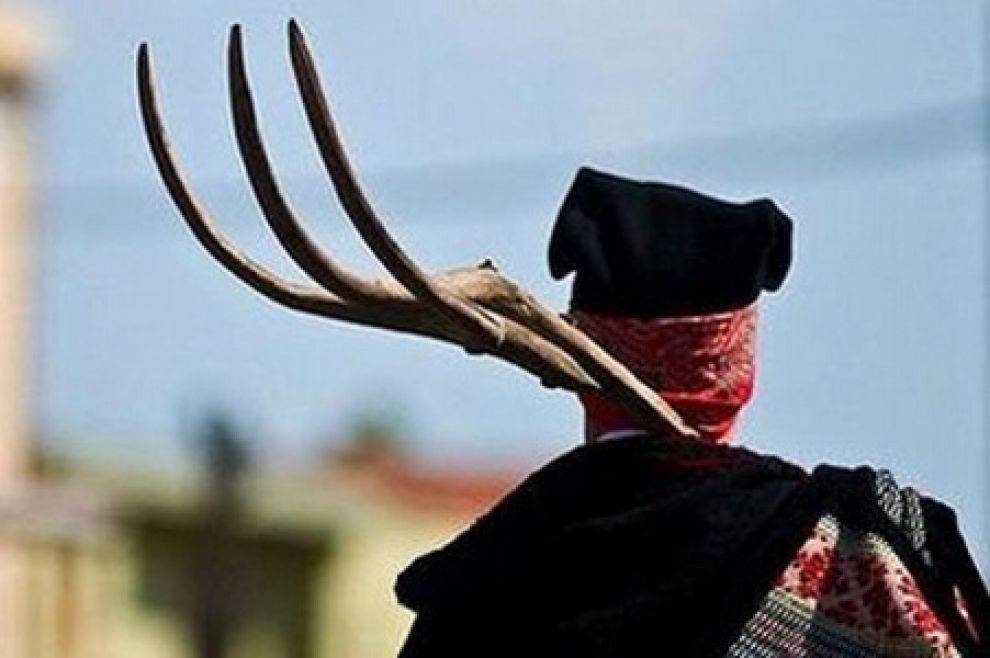
On one side, there are the Institutions. A Presidency of the Republic that in front of the crisis unceremoniously throws away the ceremonial mask and grabs the scepter of power. By forming and protecting the Letta Government (as the former Monti government, and various commissions of ‘sages’) with the sole goal to ratify the policies of the Troika and the swings of the markets. In Greece you would have said: Nea Dimokratia, PASOK and Dimar. Here you say: Democratic Party, New Centre-Right and Civic Choice.
A judiciary always at the forefront against social struggles, and at the same time keen to meddle and influence the political sphere – from ejecting the unacceptable Berlusconi from the Parliament to periodically indicting political players shortly beforehand defended by itself against the movements. A lust for power that brings to the paradox of a sentence of rejection of the electoral law – that formally delegitimizes the Parliament, the laws the latter ratified and the very institutions it nominated.
A prefectorial body and some Trade Union Confederations (the latter turned into a corporate stronghold, after years of retreat from the defence of rights and safeguard of new forms of labour) at the complete service of the bosses’ interests – from the pro-party cooperative firms mafia to the one of environmental waste and venoms – by now.
On the same side, there is the Parties’ system. Delegitimized by its absolute self-referentiality; by its corruption; by the impossibility of bankrolling its veteran cronies – because of the European-imposed budget constraints – anymore; by the popular disaffection for the customs of representative politics (voting, party membership, etc.). Delegitimized to such an extent – another paradox – to rely for its perpetuation on three strongmen (Grillo, Berlusconi, and now Renzi) operating outside Parliament, drawing upon tested media strategies and supporting liquid and post-party forms of organization.
On the other side there is the common path of the autonomous movements that coordinated a series of long divided struggles, collectives and social subjects – from homeless people to students, from no tav and no muos activists to disgruntled loaders, from social centres to hacktivists. By organizing and participating in various events of leftist and grassroots popular uprising, starting from the great day of siege to the seats of power and taking of Porta Pia on October 19 in Rome. By wiping out the remnants of the institutional left and opposing the power with both resolute and non-negotiable claims and new forms of antagonist presence in the streets and the cities.
In the middle there are the popular and working classes that face the oppression and the ineptitude of the institutional sphere: less and less protected workers, employees of more and more privatized public companies, citizens hit by natural and artificial calamities as the great unnecessary works…and among those we find the impoverished middle class and the – formally – autonomous workers’ component, that has to face the rapacity of the inland revenue and the setbacks produced by the crisis. In the light of their particular interests, fears, idiosyncrasies and their distance from timings, spaces, and forms of life, knowledge and organization of the social movements.
The “Italy Stops” demonstration of December 9 barges into this context, with the catchphrases: refusal of the current European framework, reclamation of popular and monetary sovereignty, opposition to a party-appointed Parliament – to be enforced through pickets, roadblocks and closures. A date that makes its way through the Facebook walls and on the small town bar windows – places ever since reserved to the expression of the most haphazard and pre-political forms of refusal and loathing of government measures. There are many references to national symbols and self-perception (Italian flags and calls to the “Italian people”) and, among the promoters, a series of corporate representation bodies stands out. One expressing a very particular class composition: farmers, artisans, professionals…a mostly “manual” and generally non-cognitarian labour.
An underbelly of society instinctively hostile to any traditional form of representation (the institutional right and left, trade unions and associations). So far imbued by proprietary individualism propaganda and living with the certainties of the family, of their own freelance or small business and of the consumption; and now thrown into crisis by the combined weight of the soaring taxes, of the social bloodbath of austerity and of the liberal globalization.
A composition soon associated and reduced by the media to the sole promoter brand of the Pitchforks, the agrarian and truck carrier movement that in January 2012 blocked Sicily for weeks; and that, with all its contradictions, the comrades tried to participate in. After having hyped the numbers and visibility of a protest mainly localized in the big industrial northern cities (Turin, then Genoa and Milan), the media criminalized the movement. First through patronizing forms (“if they were going to protest in a civil manner, without blocking the streets and by submitting proposals to the Parliament, they would be heard”) then emphasizing a series of divisive practices (widespread menaces against businessmen which kept their shops opened in Turin during the demonstration, a raid in a library in Savona with a call to burn its books) and finally stressing its subversive and right-wing characters.
The event raised a strong debate within the social Italian movements. Someone embarked on an accurate research effort, pointing their finger against the ambiguities, not to mention the contiguity or even the belonging of the promoters to right-wing organizations – and assuming an united social block to be marching behind them.
Someone cried foul because of the deference of some demonstrators towards the police, whereas only just a few days ago were hugging policemen themselves – hoping to take back a social space with such a puny representation of conflict.
Someone else, addicted by years of disciplined strolls with some left-leaning flags in the wind and praising the revolts abroad discovered the horror of an ill-mannered uprising, devoid of mellow mood and anything but reassuring.
As autonomous comrades we tried to stay in those squares and on those social network bulletins, inquire the people there and observe their behaviours, even arousing reflections and practices. And the result is surprising.
Yes, we are talking about different forms-of-life, in comparison to those we usually engage, and that we may even have been criticizing for their egotist and opportunist behaviours. But what about their alleged work-day autonomy, guarantee of income, social status difference when all those once well-established certainties end up in the maelstrom of a globalization that spares nothing and nobody? And what happens when they end up crushed by the ebbs and flows of the stock exchanges, by the budget laws of the technocratic governments, by the concentration of monopolies, by the spread of the department stores that kill the last illusions of the small businessman?
Yes, there were attempts to exploit the demonstrations by fascist right-wing organizations: there were roman salutes, fascist banners and chants, and in other places some local bosses of the gangmaster system, fierce expoiters of migrant labour, took the streets, or the praises of mafia were sung. But the Italian right wing is either too identitarian to effectively organize certain square protests, or has a hard time to deploy itself, in the light of the current setbacks of its political protectors of the institutional right. And in the big cities, where thanks to the unique frameworks of the territories and their previous political work the comrades could participate in the demonstrations, they were able to delve into the contradictions and bring forward quite more likeable analyses and organizational hypoteses – if not victories, as the right for migrants to take residence in their occupied houses in Turin. The latter being for sure an anomaly in the whole spectrum of the mobilization, but a possible anticipation of what may come out up ahead from other metropolitan contexts as well.
Yes, there were shifty winks to the police, forms of nationalist exploitation of the demonstration, a lone call for a military coup. Yet, such sentences as “even the policemen are our friends, as even them suffer the crisis”, or “only the Italian flag is accepted, and the policemen must defend us”, were also heard in the beginning of such movements as the Wave one – that then, for the political work and the ability of the comrades to oversee them, produced great moments of popular uprising such as the protest at the University G8 in Turin and the 2010 December 14 uprising in Rome.
Even more in this historical phase, it seems wrong to us to shut ourselves in the explicit political and ideological depictions, and we prefer to get our hands dirty and look to the intrinsic politicity of individual and – even more – collective behaviours of social sectors that, for better or for worse, didn’t experience decades of political and trade unions conditioning to passivity and obedience instead.
Because we face a spontaneous composition, born outside the old movement’s politics and that can express the ability of destabilize the institutional framework, through the refusal of representative politics and the ability of building effective counter-opposition.
Because we know that the real steps of construction of a social strike may be different from those we imagine, but we must not give up organizing them because of this.
Because at the time of the definitive face-off we do not want tlio have left any stone unturned in order to take social strata away from the easy individualist and authoritarian shortcuts.
Infoaut.org
Ti è piaciuto questo articolo? Infoaut è un network indipendente che si basa sul lavoro volontario e militante di molte persone. Puoi darci una mano diffondendo i nostri articoli, approfondimenti e reportage ad un pubblico il più vasto possibile e supportarci iscrivendoti al nostro canale telegram, o seguendo le nostre pagine social di facebook, instagram e youtube.











